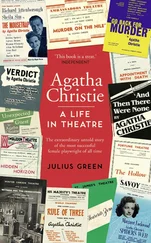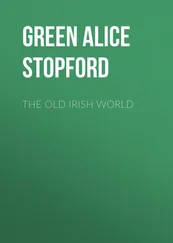Alice Green - Town Life in the Fifteenth Century, Volume 1
Здесь есть возможность читать онлайн «Alice Green - Town Life in the Fifteenth Century, Volume 1» — ознакомительный отрывок электронной книги совершенно бесплатно, а после прочтения отрывка купить полную версию. В некоторых случаях можно слушать аудио, скачать через торрент в формате fb2 и присутствует краткое содержание. Жанр: literature_19, foreign_antique, foreign_prose, Историческая проза, на английском языке. Описание произведения, (предисловие) а так же отзывы посетителей доступны на портале библиотеки ЛибКат.
- Название:Town Life in the Fifteenth Century, Volume 1
- Автор:
- Жанр:
- Год:неизвестен
- ISBN:нет данных
- Рейтинг книги:3 / 5. Голосов: 1
-
Избранное:Добавить в избранное
- Отзывы:
-
Ваша оценка:
- 60
- 1
- 2
- 3
- 4
- 5
Town Life in the Fifteenth Century, Volume 1: краткое содержание, описание и аннотация
Предлагаем к чтению аннотацию, описание, краткое содержание или предисловие (зависит от того, что написал сам автор книги «Town Life in the Fifteenth Century, Volume 1»). Если вы не нашли необходимую информацию о книге — напишите в комментариях, мы постараемся отыскать её.
Town Life in the Fifteenth Century, Volume 1 — читать онлайн ознакомительный отрывок
Ниже представлен текст книги, разбитый по страницам. Система сохранения места последней прочитанной страницы, позволяет с удобством читать онлайн бесплатно книгу «Town Life in the Fifteenth Century, Volume 1», без необходимости каждый раз заново искать на чём Вы остановились. Поставьте закладку, и сможете в любой момент перейти на страницу, на которой закончили чтение.
Интервал:
Закладка:
80
There is good fifteenth century English glass at Malvern and elsewhere. But according to Dugdale English glass was forbidden in the Beauchamp chapel at Warwick.
81
Turner’s Domestic Architecture, 98.
82
Silk manufacture in London in the fifteenth century was carried on by women; their complaints of the Lombard merchants noticed in Act of 1454 (33 H. VI. c. 5). A bill with the royal sign manual prays that the king would grant to Dom. Robert Essex his frames “ordeigned and made for the makyng of sylkes,” with their instruments which now “stondith unoccupyed within your Monastery of Westminster,” and he will ordain workmen to use them. Temp. Edward the Fourth, Hist. MSS. Com. iv. I, 177.
83
Libel of English Policy. (Political Poems and Songs, composed between 1327 and 1483, ii. ed. Wright Rolls Series.) For export of English beer to Flanders, see Fœdera, xii. 471 1492. Beer was a “malt liquor flavoured with bitter herbs,” as distinct from ale, made before 1445, though commonly ascribed to a century later.
84
Blomfield, iii. 160. 33 H. VI. cap. vii.
85
Piers Ploughman, Introduction to Text C, xxxi.
86
Schanz, ii. 35, 36.
87
Italian Relation, 42-3 (Camden Soc.); Schanz, i. 513; Heralds’ Debate, 65.
88
Plummer’s Fortescue, 114-5, 132. Compare Bacon’s Henry the Seventh, 71-72.
89
Heralds’ Debate, 61, 1453-1461.
90
Richard the Redeless, passus iii. 172.
91
Brinklow’s Tracts, published in the first half of the sixteenth century, afford interesting illustrations of the type of radical politician formed in the towns. His proposal for a single chamber and the list of reforms sketched out are not more significant than his criticism of parliamentary despotism and inefficiency, “This is the thirteenth article of our creed added of late, that whatsoever the Parliament doth must needs be well done. and the Parliament, or any proclamation out of the parliament time cannot err … then have ye brought Rome home to your own doors and given the authority to the King and Parliament that the cardinal bishops gave unto the Pope … if this be so, it is all vain to look for any amendment of anything.” Brinklow’s Complaynt, E. E. Text Society, 35. See also pp. 8, 12.
92
Libel of English Policy (Political Poems and Songs, ii. 157-205. Roll’s series, ed. Wright). The Libel was probably written after 1436. The Bishop was murdered in 1450. (Agric. and Prices, iv. 533.)
93
Wright’s Pol. Poems, ii. 282-7. Schanz, i. 446.
94
Compare the very similar expression of faith in a modern labour paper. “To this island, small as it is, has been given the work of leading the industrial organization of the world; that is to say, of governing and ordering the affairs of the world.” Trade Unionist, Dec. 26, 1891.
95
Compare Paston Letters, i. 531; Brinklow’s Complaynt 11.
96
Pauli, Drei volkswirtschaftliche Denkschriften, s. 61, 75.
97
In 1447 exactions in England were so heavy “as that the minds of men were not set upon foreign war, but vexed above measure how to repel private and domestical injuries, and that therefore neither pay for the soldier nor supply for the army were as need required put in readiness.” (Polydore Vergil, 77 Camden Soc.) For interruption of trade by the war, Paston, i. 425-6. Davies’ Southampton, 252-3. The Staplers complain that before the war the French bought yearly 2,000 sacks of wool, now only 400 (Schanz, ii. 568). For effect of the war on the salt trade, Rogers’ Econ. Interpretation of History, 100. For the wine trade, &c., Schanz, i. 299-300, 643-50. “It cannot be brought to pass by any mean that a French man born will much love an English man, or, contrary, that an English will love a French man; such is the hatred that hath sprung of contention for honour and empire.” (Pol. Vergil, 82.)
98
Schanz, i. 32-33.
99
See the series of statutes with which the reign of Edward the Fourth opens. 4, Ed. IV. c. 1-8. Schanz, i. 447.
100
Ashley’s Wool. Ind. 81-2; expanded in his Economic History, part ii. Schanz, i. 445.
101
Schanz, i. 446. “The caryage out of wolle to the Stapul ys a grete hurte to the pepul of Englond; though hyt be profitabul both to the prynce and to the marchant also.” (Starkey, England in the Reign of Henry the Eighth. Early English Text Society, p. 173.)
102
Brinklow’s Complaynt, E. E. Text Soc. p. 11. Schanz, i. 479, note.
103
The fellowship of the mercers and other merchants and adventurers living in London “by confederacy made among themselves of their uncharitable and inordinate covetous for their singular profit and lucre contrary to every Englishman’s liberty, and to the liberty of the Mart there” made an ordinance and constitution that every Englishman trading with the marts of Flanders or under the Archduke of Burgundy should first pay a fine to the Merchants’ Fellowship in London on pain of forfeiture of all their wares bought and sold. The fine was at first half an old noble, and demanded by a colour of a fraternity of S. Thomas at Canterbury, and “so by colour of such feigned holiness it hath been suffered to be taken for a few years past.” Finally, however, the London Fellowship raised the fine to £20, then the other merchants began to withdraw from the marts and the cloth trade to suffer. On the complaint of the merchant adventurers living outside London Parliament ordered that the fine should only be ten marks. (12 Henry VII., cap. 6.) For the complaint of the Hull traders against the merchant adventurers of London in 1622 see Lambert’s Gild Life, 171-2.
104
Schanz, i. 342.
105
Schanz, ii. 571.
106
3 Ed. IV. c. 4.
107
Schanz, i. 618-19.
108
Bacon’s History of Henry the Seventh, 38.
109
The men of Cologne had a house in London as early as 1157.
110
Founded before 1240 (Schanz, i. 291-3). Some interesting details are given in Mr. Hudson’s Notes on Norwich (Norfolk Archæology, xii. 25; see section on madder and woad.) For merchants of Lorraine, Denmark, &c., Liber Custumarum, Nunimenta Gildhallæ Londiniensis (Rolls Series), vol. ii. part 1, xxxiv. &c.
111
In the beginning of the fourteenth century (Schanz, i. 113-8).
112
See Keutgen, Die Beziehungen der Hanse zu England, 40.
113
Boys’ Sandwich, 375; Paston, iii. 436. The foreign trade is illustrated by some of the things in Fastolf’s house; the Seeland cloth, i. 481; iii. 405 – brass pots and chafferns of French making, i. 481 – silver Paris cups, 475; iii. 270-1, 297-8 – blue glasses, i. 486 – habergeons of Milan, 487 – ”overpayn of Raines,” 489 – cloth of Arras, 479 – harness from Almayne, iii. 405 – German girdles, iii. 270-1 – the treacle-pots of Genoa, ii. 293-4, bought of the apothecary. The merchant’s marks were especially noted for fear of adulteration. The grocer, or dealer in foreign fruits, also sold hawks, iii. 55-6. In the reign of Henry the Eighth about a dozen shops in London sold French or Milan cups, glasses, knives, daggers, swords, girdles, and such things. Hist. MSS. Com. viii. 93. “A discourse of the commonwealth of this Realme of England.”
Читать дальшеИнтервал:
Закладка:
Похожие книги на «Town Life in the Fifteenth Century, Volume 1»
Представляем Вашему вниманию похожие книги на «Town Life in the Fifteenth Century, Volume 1» списком для выбора. Мы отобрали схожую по названию и смыслу литературу в надежде предоставить читателям больше вариантов отыскать новые, интересные, ещё непрочитанные произведения.
Обсуждение, отзывы о книге «Town Life in the Fifteenth Century, Volume 1» и просто собственные мнения читателей. Оставьте ваши комментарии, напишите, что Вы думаете о произведении, его смысле или главных героях. Укажите что конкретно понравилось, а что нет, и почему Вы так считаете.












